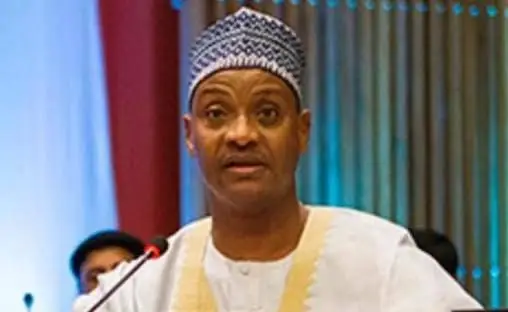Democracy & Governance
Nigeria In Changing Times: Rekindling Hope And Optimism (Part 2) -By Usman Sarki
It is about time that Nigerians are brought down to earth and took note of what is happening in their country today. We must descend from the dizzying heights of elite posturing and grandstanding that pass for politics today, and firmly position ourselves in the historical events that shaped our country and its government. It is only by doing so that we shall appreciate the precarious situation that we are in, and attempt to extricate ourselves from our situation as expeditiously as possible.

“Let us by all means be up and doing, setting the world to rights and sounding our own trumpets”- John Buchan
The Fourth Industrial Revolution that is now said to be taking place is driven by science, connectivity, data generation and application, digital technology, innovation, information and communication platforms, mobile telephony, artificial intelligence, remote technology, and various other state-of-the-art and cutting-edge technologies, techniques and systems. Under such dispensations, governments are endeavouring to keep up with the pace of progress lest they become ossified and rendered inconsequential in the management of human affairs. States themselves are reconfiguring their structures to remain relevant and in control of the direction in which societies and countries are moving.
Decentralisation of governance and less presence of the state in human affairs will increasingly become the norm in many advanced countries. Cities will become autonomous gravitational centers of life and concentrated areas of production, exchange and consumption. Governance will increasingly become reduced to the micro-level with the superstructures of the state that hitherto dominate societies becoming reduced to the barest levels. All the above achievements or developments have a common thread running through them. This thread is peace, stability and predictability. Only when this thread runs successfully through all the fabrics of society, can there be a reasonable basis of progress and even hope of attaining a decent sort of living.
Without peace, there can be no stability. Without stability, there can be no predictability. Without predictability, there can be no policies and programmes. Without policies and programmes, there can be no government or the possibility of governance of societies and countries. Without government, there can be no organised, purposeful and coordinated activities by the people. Without these elements, there can be no sovereignty, no nation and no basis for human organisation and living together. When all these are absent, we will be driven into oblivion.
No one can say that we have not made progress in Nigeria today. Indeed, there is considerable room for hope and optimism without being unrealistic or blind to our deficiencies. We have made laudable progress in the areas of education and human capital development at all levels of learning. We have expanded the vistas of healthcare delivery to cater for the welfare of millions of Nigerians. We have built long and vast stretches of roads and railways, power stations and transmission lines and other vital national infrastructure. We have beefed up our national defense and security infrastructure and made ourselves prepared for various contingencies.
We are achieving remarkable results in agriculture and livestock development, feeding ourselves with locally harvested and processed foodstuffs. Our manufacturing sector may be lagging behind, however, we are still able to produce many essential personal and household items to meet our daily needs. We have constructed brand new cities like Abuja from scratch. We are building hydropower stations and telecommunications networks. We have achieved a decent level of Internet penetration and mobile phone subscriptions. We are leading our region and the rest of Africa in many areas particularly economic growth and social mobility.
Yet, many of the positive gains that we have recorded are being undermined or unraveled by insecurity and internal conflicts. Worst of all, our politics are anti-progress and basically primordial in nature and outlook. They do not conduce towards the collective advancement of the societies in accordance with planned and systematic implementation of programmes. Our governance system and structures are costly, inefficient and chaotic. There seems to be no system-wide coherence in our policy and programming outlooks. Consistency and sustainability also seem to be lacking in policy-making and implementation.
The prerequisites of peace, stability, predictability and consistency, must be developed from the scratch once again, to become the core principles of government in this country. While the centralization of governance may not necessarily be in our overall interest, its bifurcation is also detrimental to our progress and the achievement of a stable society. We must re-examine the way we attend to things especially carrying out the functions of government in order to set things aright in our country.
It is about time that Nigerians are brought down to earth and took note of what is happening in their country today. We must descend from the dizzying heights of elite posturing and grandstanding that pass for politics today, and firmly position ourselves in the historical events that shaped our country and its government. It is only by doing so that we shall appreciate the precarious situation that we are in, and attempt to extricate ourselves from our situation as expeditiously as possible.




















